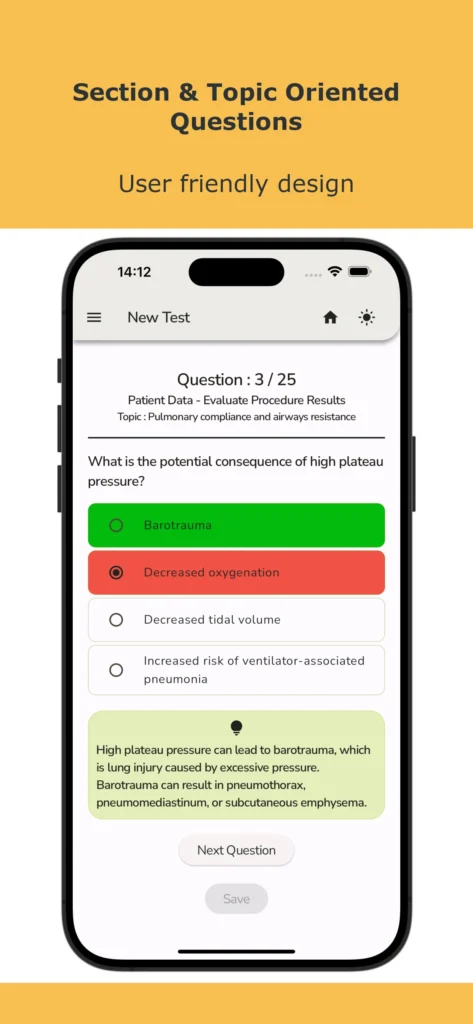Introduction
Welcome to our comprehensive guide on how many CEUs is PALS for NBRC. If you’re preparing for the NBRC TMC exam and wondering about the CEU requirements for PALS (Pediatric Advanced Life Support), you’ve come to the right place. In this guide, we’ll provide you with all the information you need to know about the CEU requirements for PALS and how to pass the NBRC TMC exam.
Before we dive into the details, let’s briefly discuss the importance of the NBRC TMC exam. The National Board for Respiratory Care (NBRC) is the organization responsible for credentialing respiratory therapists in the United States. The TMC (Therapist Multiple-Choice) exam is a crucial step in obtaining your respiratory therapy license and becoming a certified respiratory therapist.
Now, let’s focus on PALS and its CEU requirements for the NBRC. PALS is a specialized course that focuses on the treatment of pediatric patients in emergency situations. It is designed for healthcare professionals who work with children, such as respiratory therapists, nurses, and doctors.
So, how many CEUs is PALS for NBRC? The NBRC does not specifically require PALS for CEU purposes. However, it is highly recommended for respiratory therapists who work with pediatric patients. PALS can provide you with valuable knowledge and skills that will enhance your ability to care for critically ill children.
When it comes to passing the NBRC TMC exam, it’s essential to have a solid understanding of the exam content and format. Here are a few tips to help you prepare:
- Review the NBRC TMC exam content outline to understand the topics that will be covered.
- Utilize study materials, such as textbooks, online courses, and practice exams, to reinforce your knowledge.
- Join study groups or online forums to connect with other respiratory therapy students and professionals.
- Practice time management during the exam to ensure you can answer all the questions within the allotted time.
In conclusion, while PALS is not a specific CEU requirement for the NBRC, it is highly recommended for respiratory therapists working with pediatric patients. By obtaining PALS certification, you can enhance your skills and knowledge in pediatric emergency care. To pass the NBRC TMC exam, make sure to thoroughly prepare by studying the exam content, utilizing study materials, and practicing time management. Good luck on your journey to becoming a certified respiratory therapist!
Understanding NBRC and CEUs
Before we dive into the topic of how many CEUs is PALS for NBRC, let’s first understand what NBRC and CEUs are.
The National Board for Respiratory Care (NBRC) is a non-profit organization that provides credentialing services for respiratory therapists in the United States. It is responsible for administering exams and issuing certifications to respiratory therapists.
Continuing Education Units (CEUs) are a way for respiratory therapists to maintain their certifications and stay up-to-date with the latest advancements in their field. CEUs are earned by completing approved educational activities, such as attending conferences, workshops, or online courses.
How Many CEUs is PALS for NBRC?
PALS, which stands for Pediatric Advanced Life Support, is a specialized certification course for healthcare providers who work with pediatric patients. While PALS is not directly administered by the NBRC, it is recognized by the NBRC as an approved continuing education activity.
Completing a PALS course can earn respiratory therapists a certain number of CEUs, which can be used towards maintaining their NBRC certifications. The exact number of CEUs earned for completing a PALS course may vary depending on the provider and the duration of the course.
It is important for respiratory therapists to check with their state licensing board and the NBRC to determine the specific CEU requirements and guidelines for maintaining their certifications.
How to Pass the NBRC TMC Exam
The NBRC TMC (Therapist Multiple-Choice) Exam is a comprehensive exam that assesses the knowledge and skills of respiratory therapists. Passing the NBRC TMC Exam is a requirement for obtaining the Certified Respiratory Therapist (CRT) credential.
To increase your chances of passing the NBRC TMC Exam, it is important to study and prepare effectively. Here are some tips:
- Review the NBRC TMC Exam content outline to understand the topics that will be covered.
- Use study materials and resources specifically designed for the NBRC TMC Exam.
- Practice with sample questions and take mock exams to familiarize yourself with the format and timing of the exam.
- Seek guidance from experienced respiratory therapists or instructors who have successfully passed the exam.
How to Pass the NBRC Exam
In addition to the TMC Exam, the NBRC also offers other exams for respiratory therapists, such as the Clinical Simulation Exam (CSE) and the Sleep Disorders Specialty (SDS) Exam. Each exam has its own requirements and preparation strategies.
To pass the NBRC Exam, it is important to:
- Understand the exam format and content.
- Study and review relevant textbooks, guidelines, and resources.
- Practice with sample questions and scenarios.
- Seek guidance from experienced respiratory therapists or instructors.
How Many CEUs is ACLS for NBRC?
ACLS, which stands for Advanced Cardiovascular Life Support, is another specialized certification course for healthcare providers. Similar to PALS, ACLS is recognized by the NBRC as an approved continuing education activity.
Completing an ACLS course can earn respiratory therapists a certain number of CEUs, which can be used towards maintaining their NBRC certifications. The exact number of CEUs earned for completing an ACLS course may vary depending on the provider and the duration of the course.
Again, it is important for respiratory therapists to check with their state licensing board and the NBRC to determine the specific CEU requirements and guidelines for maintaining their certifications.
How Many CEUs is PALS for NBRC?
Understanding Continuing Education Units (CEUs)
Before we dive into the specific number of CEUs required for the Pediatric Advanced Life Support (PALS) course for the National Board for Respiratory Care (NBRC), let’s first understand what CEUs are.
CEUs, or Continuing Education Units, are a way to measure and recognize the completion of professional development activities. These units are commonly used in various industries, including healthcare, to ensure that professionals stay up-to-date with the latest advancements and maintain their skills and knowledge.
Now, let’s explore the CEU requirements for PALS for NBRC.
CEU Requirements for PALS
The NBRC, as the governing body for respiratory care professionals, sets the standards and requirements for continuing education. For PALS, the NBRC requires respiratory therapists to earn a specific number of CEUs to maintain their certification.
As of the latest guidelines, the NBRC requires respiratory therapists to earn 10 CEUs for PALS recertification. These CEUs can be obtained through various approved educational activities, such as attending conferences, completing online courses, or participating in workshops.
Importance of CEUs for NBRC Certification
Earning the required number of CEUs is crucial for maintaining your NBRC certification. By staying current with the latest developments in PALS, you ensure that you are providing the best possible care to your patients. Additionally, maintaining your certification demonstrates your commitment to professional growth and lifelong learning.
Tips for Earning CEUs and Passing the NBRC TMC Exam
While earning CEUs is essential, it is equally important to prepare for and pass the NBRC TMC (Therapist Multiple-Choice) exam. Here are some tips to help you succeed:
- Develop a study plan and allocate dedicated time for exam preparation.
- Utilize study resources such as textbooks, practice exams, and online courses.
- Join study groups or online forums to connect with fellow respiratory therapists and share knowledge.
- Take advantage of hands-on clinical experiences to reinforce your theoretical knowledge.
- Stay updated with the latest guidelines and advancements in respiratory care.
By combining effective exam preparation strategies with earning the required CEUs, you can enhance your knowledge, skills, and chances of passing the NBRC TMC exam.
CEUs for ACLS and Other NBRC Courses
In addition to PALS, the NBRC also requires respiratory therapists to earn CEUs for other courses, such as Advanced Cardiovascular Life Support (ACLS). The specific number of CEUs may vary for each course, so it is essential to refer to the NBRC guidelines for accurate information.
Remember, earning the required CEUs not only helps you maintain your certification but also demonstrates your commitment to professional growth and providing high-quality care to your patients.
Tips to Pass the NBRC TMC Exam
Understanding the NBRC TMC Exam
The National Board for Respiratory Care (NBRC) Therapist Multiple-Choice (TMC) Exam is a crucial step for respiratory therapists looking to become certified. This comprehensive exam assesses the knowledge and skills required to practice as a respiratory therapist.
Passing the NBRC TMC Exam requires thorough preparation and a solid understanding of the exam format, content, and key concepts. Here are some tips to help you succeed:
1. Familiarize Yourself with the Exam Format
Before diving into your study materials, take the time to understand the structure and format of the NBRC TMC Exam. It consists of 160 multiple-choice questions that cover various topics related to respiratory therapy.
2. Create a Study Plan
Develop a study plan that suits your learning style and schedule. Allocate dedicated time each day or week to review the exam content. Break down the topics into manageable sections and set specific goals for each study session.
3. Utilize Reliable Study Resources
Choose high-quality study resources that align with the NBRC TMC Exam content outline. These may include textbooks, online courses, practice exams, and study guides. Look for resources that cover the required knowledge and provide practice questions to assess your understanding.
4. Practice with Sample Questions
One of the most effective ways to prepare for the NBRC TMC Exam is by practicing with sample questions. This allows you to familiarize yourself with the question format, assess your knowledge, and identify areas that require further study.
5. Join Study Groups or Online Forums
Engaging with fellow respiratory therapy students or professionals can provide valuable insights and support during your exam preparation. Join study groups or online forums where you can discuss challenging topics, share study materials, and ask questions.
6. Take Advantage of Hands-On Experience
While studying the theoretical aspects of respiratory therapy is essential, hands-on experience is equally important. If possible, seek opportunities to apply your knowledge in clinical settings or through practical simulations. This will enhance your understanding and retention of the material.
7. Review and Revise Regularly
Consistent review and revision are key to retaining information and reinforcing your understanding. Schedule regular review sessions to go over previously studied topics and ensure you have a solid grasp of the material.
8. Stay Calm and Confident on Exam Day
On the day of the NBRC TMC Exam, it’s crucial to stay calm and confident. Get a good night’s sleep, eat a healthy breakfast, and arrive at the exam center early. Trust in your preparation and approach each question with a focused mindset.
By following these tips and dedicating yourself to thorough preparation, you can increase your chances of passing the NBRC TMC Exam and advancing your career as a respiratory therapist.
How to Pass the NBRC Exam: Key Takeaways
Understanding the NBRC Exam
The National Board for Respiratory Care (NBRC) exam is a crucial step for respiratory therapists seeking certification. To pass the NBRC exam, it is essential to prepare effectively and have a solid understanding of the exam format, content, and key concepts.
Key Tips to Pass the NBRC Exam
Here are some key takeaways to help you pass the NBRC exam:
- 1. Study the Exam Blueprint: The NBRC provides an exam blueprint that outlines the content areas and the percentage of questions allocated to each. Familiarize yourself with the blueprint to focus your study efforts effectively.
- 2. Review Key Concepts: Identify the key concepts and topics covered in the exam. Review textbooks, study guides, and online resources to strengthen your knowledge in these areas.
- 3. Practice with Sample Questions: Take advantage of practice exams and sample questions available online or in study guides. This will help you become familiar with the exam format and assess your understanding of the content.
- 4. Time Management: Develop effective time management strategies to ensure you can complete the exam within the allocated time. Practice answering questions within the time limits to improve your speed and accuracy.
- 5. Seek Additional Resources: If you are struggling with certain topics or concepts, consider seeking additional resources such as online courses, tutoring, or study groups. These resources can provide valuable insights and support to enhance your understanding.
Importance of Continuing Education Units (CEUs)
Continuing Education Units (CEUs) play a significant role in maintaining your respiratory therapy certification. It is important to stay updated with the latest advancements and best practices in the field. The NBRC requires a certain number of CEUs to be completed within a specific timeframe to maintain your certification.
CEUs for PALS and ACLS
For respiratory therapists, Pediatric Advanced Life Support (PALS) and Advanced Cardiovascular Life Support (ACLS) are essential certifications. The number of CEUs required for PALS and ACLS may vary depending on the NBRC’s guidelines. It is important to check the NBRC website or contact them directly to determine the specific CEU requirements for PALS and ACLS.
Conclusion
Passing the NBRC exam requires thorough preparation, understanding of key concepts, and effective time management. By following the key takeaways mentioned above and staying updated with the CEU requirements, you can increase your chances of success in the NBRC exam and maintain your respiratory therapy certification.
Conclusion
In conclusion, understanding the number of CEUs required for PALS certification from NBRC is crucial for respiratory therapists. By successfully completing the PALS course and earning the necessary CEUs, respiratory therapists can enhance their knowledge and skills in pediatric advanced life support. Additionally, passing the NBRC TMC exam is a significant milestone in a respiratory therapist’s career, and proper preparation is essential. By following the tips and strategies outlined in this guide, respiratory therapists can increase their chances of success in the NBRC exam. It is also important to note that ACLS certification also requires a specific number of CEUs for NBRC. Therefore, respiratory therapists should ensure they meet the CEU requirements for both PALS and ACLS certifications to maintain their professional credentials and provide the best possible care to their patients.








